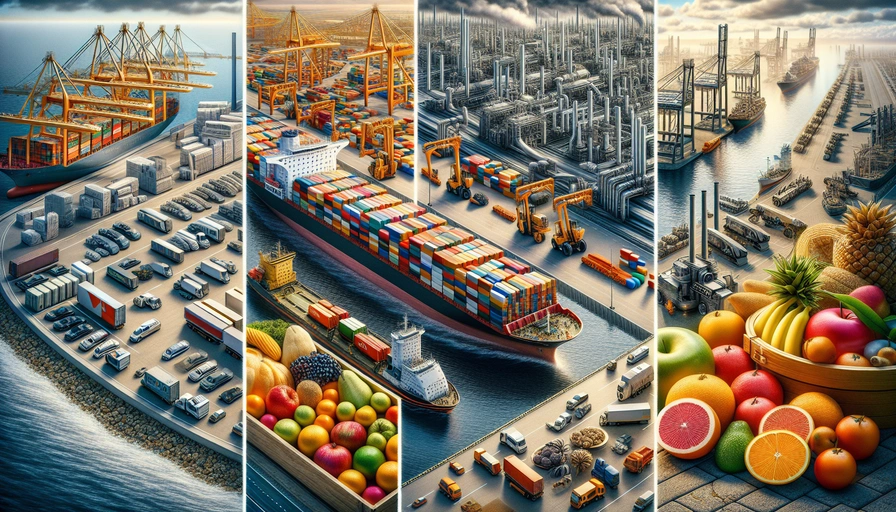Russia’s international trade landscape has been marked by significant developments and challenges in recent months. As the country navigates complex geopolitical dynamics and economic pressures, several key events have shaped its trade relations and economic strategies.
- Naftogaz Ordered to Pay Gazprom $1.3 Billion in Penalties: A St. Petersburg court ordered Naftogaz of Ukraine to pay Gazprom over $1.3 billion USD in penalties for violating a prohibition against pursuing legal action against Gazprom in international arbitration. This dispute stems from a 2019 contract for Russian gas transit through Ukraine.
-
Putin Extends Options for Foreign Gas Payments Until 2025: Russian President Vladimir Putin signed a decree allowing foreign buyers to pay for gas through banks other than Gazprombank until July 1, 2025. This extension provides a reprieve for foreign buyers needing time to adjust to previous Gazprombank-only payment requirements.
-
Novak and Szijjártó Discuss Energy Cooperation: Russian Deputy Prime Minister Alexander Novak met with Hungarian Minister of Foreign Affairs and Trade Péter Szijjártó to discuss bilateral trade, economic relations, and energy cooperation. Russia supplied significant amounts of oil and gas to Hungary, emphasizing the importance of reliable energy supplies.
-
Rosselkhozbank Sanctions Relief to Ease Russian Food Exports: The removal of sanctions on Rosselkhozbank (Russian Agricultural Bank) is expected to ease Russian product exports to countries facing difficulties due to sanctions. This is part of the Black Sea Initiative agreement between Russia and the US, aimed at restoring Russia’s access to global agricultural and fertilizer export markets.
-
Ariston’s Russia Return: A Western Business Defies Sanctions: Ariston, an Italian home appliance manufacturer, resumed operations in Russia after initially withdrawing in 2022. This move comes amid improved US-Russia relations and ongoing negotiations for the return of foreign companies to the Russian market.
-
US Firms Eye Return to Russian Market: Numerous US companies are requesting to return to the Russian market, primarily from the energy and other sectors. The return is conditional upon Russia’s approval and favorable terms for the country, with the government aiming to ensure that domestic producers maintain advantages over foreign competitors.
-
Russian Bond Sales Plummet to Three-Month Low: The Russian Ministry of Finance reduced OFZ (Russian government bonds) placement to RUB 89 billion, the lowest since February 5th. Despite this, foreign investors, including those from China, the Middle East, and US funds, are showing increased interest in OFZs, driven by hopes of improved US-Russia relations and expectations of lower local interest rates.
-
Russian Economy’s Resilience Surprises Western Analysts: Western analysts underestimated the adaptability of the Russian economy to economic shocks. The Russian economy showed resilience, defying predictions of collapse or significant GDP growth reduction, attributed to effective government policies and the market-based nature of the economy.
In summary, Russia’s international trade and economic landscape are undergoing significant changes, influenced by geopolitical tensions, sanctions, and strategic economic policies. The country’s ability to adapt and navigate these challenges will be crucial in shaping its future trade relations and economic stability.

